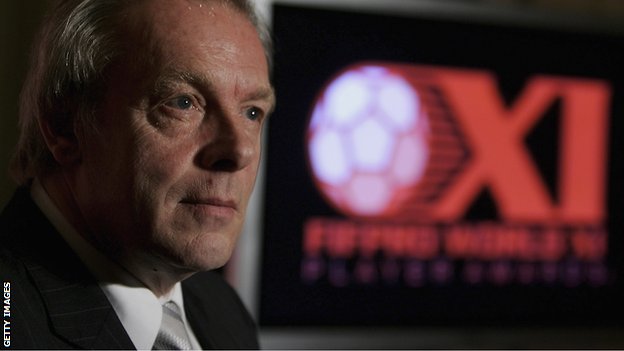
PFA chief executive Gordon Taylor is honorary president of Fifpro
Football transfers: PFA concerned about Fifpro legal case
The Professional Footballers' Association says it is concerned at the legal action taken by world players' union Fifpro.
Fifpro has lodged a complaint against the transfer rules of world governing body Fifa with the European Commission.
The PFA said it supports the intention behind the action "in general terms".
But it said it has "reservations that litigation taken outside of football can lead to entrenched positions and delay in change and improvement".
A PFA statement read: "It [litigation] can also sometimes have unintended consequences, which may not be foreseeable at this point."
Fifpro believes the current global transfer system breaches basic European Union competition law.
The world players' union, which represents over 65,000 players in 65 countries, has been in talks for several years with Fifa, European governing body Uefa and Europe's leading clubs and leagues about reforming the system.
But that process broke down acrimoniously in January.
Fifpro wants four key changes made to the rules:
- Any player not paid by their club for more than 30 days can terminate their contract providing they have given the club at least 10 days' written notice
- If a contract is terminated by the club without just cause or by the player for non-payment, the player should be compensated by having the contract paid out by the club
- Any player without a contract after the process above should be able to find work immediately, without having to wait for a transfer window to open
- These reforms should apply domestically and internationally
PFA chief executive Gordon Taylor is honorary president of Fifpro and deputy Bobby Barnes is president of Fifpro Europe.
Their statement said that, while players in the UK had a "secure and positive environment", that was not the case everywhere.
The statement read: "Clearly there are areas of the Fifa regulations that need looking at and improving for the benefit of all.
"We support the intention but the PFA has always held the view that negotiation and collective bargaining with our fellow stakeholders is the way forward and we feel that the stability and influence of the PFA demonstrates that this should be the preferred method of achieving results."
